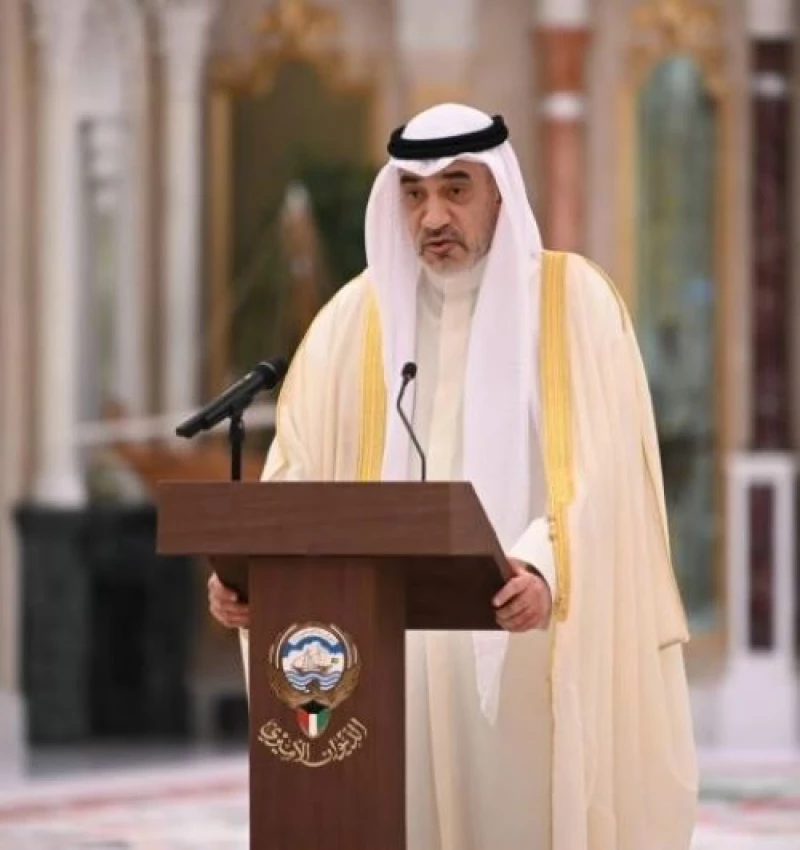Latest News
- Expats Alert: PACI Just Changed The Rules For Updating Your Addr...
- Best Pizza In Kuwait: Top Brands And What To Order
- Best Budget-Friendly Chalets & Villas In Kuwait For Weekend Geta...
- Why Electricity Bills Are Rising In Kuwait & Smart Ways Expats C...
- App Store Optimization: Why It’s Becoming A Core Part Of SEO Str...
- Best Shower Filters In Kuwait For Hair Fall And Skin Protection
- Exness Sets A New Standard Of Consistency In The Trading Industr...
- Instant Withdrawals In Trading – A Game Changer For Traders In K...
- Best Abaya Shop In Kuwait: Editorial Review Of Abay.com
- IPhone 17 In Kuwait: Prices, Colors, Specs & Where To Buy
- Best Drinking Water Filter For Home In Kuwait
- Avoid Common Qatar E-visa Application Mistakes. Learn The Top 5...
60s Law Branded A Shame: Minister Highlights Expat Woes
Criticism of the "60 Law"
In a statement to Al-Jarida, Sheikh Fahad Al-Yousef expressed his concerns over the "60 law," which restricts the residency of expatriates beyond the age of 60 without a permit. He stated, “There are expatriates who were born in Kuwait or have spent most of their lives here, serving the country with honesty and integrity. They deserve our gratitude and respect at the end of their service. It is essential to recognize their simplest rights and allow them to remain in Kuwait, which they consider their home.”
Protecting the Rights of Expatriates
Sheikh Fahad highlighted the directives of His Highness Amir Sheikh Meshal Al-Ahmad, stressing the importance of protecting expatriates' financial and legal rights. One of the significant issues addressed was the failure of some companies to pay workers' wages. He warned businesses that non-payment of wages would result in legal consequences, including referral to the judiciary for forced restitution.
Action on Unpaid Wages and Worker Rights
During the Hawalli security campaign, Sheikh Fahad personally intervened in a case involving two Lebanese workers who had not been paid for six months. After listening to their grievances, he instructed local authorities to summon the company owner and two managers—an Egyptian and a Jordanian. Upon investigation, the managers admitted to withholding wages without justification.
Sheikh Fahad ordered the company to pay the workers their overdue wages, return their passports, and cover the cost of residency permits within 48 hours. He emphasized that strict measures would be enforced to prevent similar violations in the future, asserting that such actions harm Kuwait's reputation.
Addressing Other Expatriate Issues
In another case, an Arab family approached Sheikh Fahad with concerns over the denial of a driving license for their husband, an engineer, despite meeting all necessary requirements. Sheikh Fahad immediately took action, instructing security authorities to review the case and ensure that the engineer received his driving license if eligible.
Sheikh Fahad Al-Yousef’s Commitment to Justice
Concluding his remarks, Sheikh Fahad reaffirmed Kuwait’s commitment to justice for all residents, including expatriates. He emphasized that those who have contributed to the country deserve to be treated with fairness and respect, reiterating the nation’s values of humanity and justice. "We must uphold the values of humanity and fairness, ensuring that Kuwait remains a safe haven for those who serve it with integrity," he said.
Conclusion
Sheikh Fahad Al-Yousef's comments highlight a growing awareness and advocacy for expatriates' rights in Kuwait. His clear stance on ensuring fair treatment and upholding legal standards for expatriates—especially those who have lived and worked in the country for many years—serves as a reminder of the importance of human dignity and respect for all.





